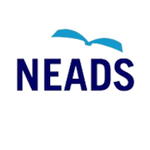Soft Skills from an Employers Perspective
We often talk about what soft skills a potential employee, whether a new graduate or a seasoned professional seeking new employment, needs to bring to the hiring table, but what about employers? That’s right; employers from small businesses to large, national or international organizations need to bring their soft skills too.
What are some of the top skills and how will you know if you are doing a good job? Below are some areas with self-reflective questions:
- Networking
- Does your organization collaborate with any local agencies that work with Persons with Disabilities?
- How long have they been working together?
- How extensive is the partnership?
- Have you offered any work experience opportunities?
- Have you hired anyone because of the partnership? What are some of the successes of the partnership?
- An Inclusive Work Environment
- When you look around your organization, is it staffed to be reflective of the area(s) in which it operates?
- Is your company culture one of diversity and inclusion?
- Does your employee base have any one with a disability (visible and/or invisible)?
- If so, what is the percentage?
- Are there barriers in your hiring processes?
- Are there barriers in your interviewing processes?
- Have your hiring leaders been trained on Unconscious Bias?
- How open is your company to using assistive technologies to assist someone with a disability?
- Social Graces
- Honesty
- Do you feel you can treat everyone the same, while being respectful of their differences?
- Can you portray your organization as it is and not something you wish it to be?
- Honesty
- If you are a federally regulated organization, are you familiar with your Employment Equity results from the most recent years?
- Confidence
- When you are meeting someone with a disability, are you able to provide a confident opening greeting and good eye contact?
- Personality
Future employees look at any employees they encounter as a sign of what the rest of the organization will be like.
- Do you have a positive or optimistic attitude?
- Are you able to show empathy?
- Are you able to listen, without interrupting?
- Can you treat the person as you would like to be treated? If you are not sure about something, then ask the individual in a respectful manner.
- Ability to admit you don’t know the answer
…but be willing to find out the answers and reconnect with them. A simple statement of: “I really don’t know the answer to that question, but this would be my best guess …or… these would be the steps I would take to find out the answer”, would serve you better.
If companies are expecting current and future employees to have a good soft skill portfolio then it should hold true that those same employees should be able to expect the same from their employers. When an organization provides a work culture and environment that is diverse, inclusive and accepting it can yield a positive return of investment through the overall productivity and job satisfaction which in turn impacts the bottom line.
All of us have the ability to improve our soft skills to make them shine in order to be that employer that everyone wants to work for.
Soft Skills Articles:
